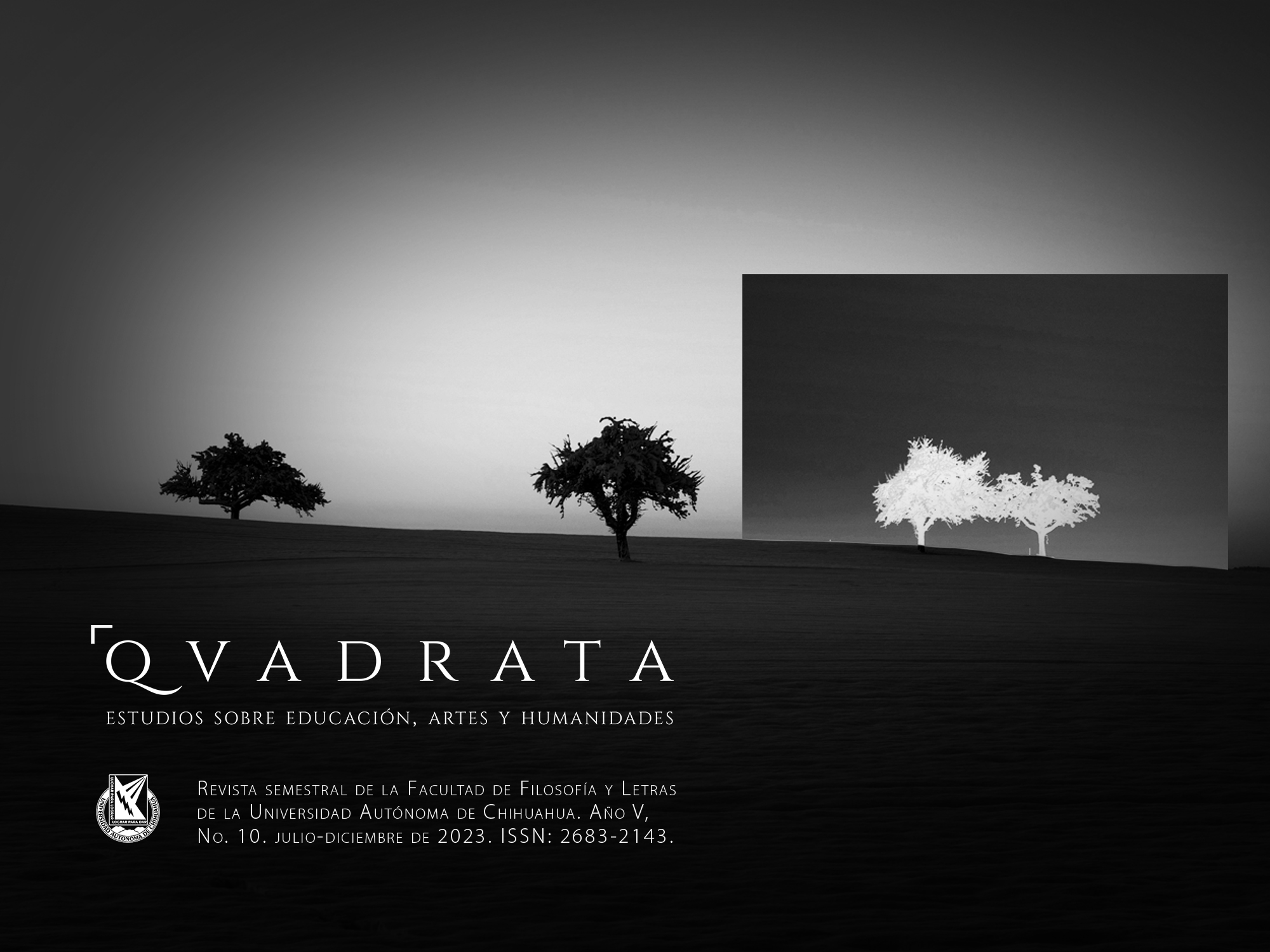Between the break and social reality: Education
DOI:
https://doi.org/10.54167/qvadrata.v5i10.1521Keywords:
Edycation, School, Discourse, Power, EpistemologyAbstract
The purpose of the work is to generate a discussion between the idea of education opposed to the school, through a constellation that allows different thinkers to reflect from the project of the human being gestated at present, all this carried through the conductive thread of the discursive orders. Woven in the historical evolution that cognitive, ideological and behavioral processes generate in the subjects from the social, economic, political and historical conditions that in the current era are shown and accepted as normal elements or as discursive orders of normality. These discursive orders are closely linked to the school as an institutional entity that reproduces a part of social reality, however, education as an act of thought could put the lens on the fractures, cracks or ruptures of the discourse to constantly think at the same time, human being in his being for himself and his being for others as a tension of a negative dialectic that seeks to think that which has not yet been enlightened.
References
Adorno, T. W. (1998a). Educación para la emancipación. Ediciones Morata.
Adorno, T. W. (1998b). Mínima Moralia. Reflxiones desde la vida dañada. In Taurus. https://sanasideas.fies.wordpress.com/2013/04/minima-moralia-por-theodor-adorno.pdf
Adorno, T. W. (2005). Dialéctica Negativa. La jerga de la autenticidad. Edicioncs Akal, 505. http://libroesoterico.com/biblioteca/metafiica/AdornoThDialectica-negativa-y-La-jerga-de-la-autenticidad.pdf
Agamben, G. (2011). ¿Qué es un dispositivo? Sociológica, 26(73), 249–264. http://www.scielo.org.mx/scielo.php?pd=S0187-01732011000200010&script=sci_arttext
Benjamin, W. (2008). Tesis sobre la historia y otros fragmentos. ITACA. http://www.bolivare.unam.mx/traducciones/Benjamin,Tesissobrelahistoria.pdf
Berman, M. (1988). Todo lo sólido se desvanece en el aire. La experiencia de la modernidad (Primera). Siglo Veintiuno Editores.
Bourdieu, P., & Passeron, J.-C. (1996). La reproducción. Elementos para una teoría del sistema de enseñanza (2nd ed.). Distribuciones Fontamara.
Deleuze, G. (2014). El poder. Curso sobre Foucault II (Primera). Cactus. https://www.ptonline.com/articles/how-to-get-better-mfresults
Deleuze, G., & Guattari, F. (2004). Mil mesetas. Capitalismo y esquizofrenia (Sexta). PRE-TEXTOS.
Foucault, M. (1988). El sujeto y el poder. Revista Mexicana de Sociología, 50(3), 3–22. http://www.peu.buap.mx/web/seminario_cultura/El_sujeto_y_el_poder.pdf
Foucault, M. (1999a). Estética , ética y hermenéutica (Primera). Paidós.
Foucault, M. (1999b). Estrategias de poder. Paidós.
Foucault, M. (2002). Vigilar y castigar: nacimiento de la prisión (Primera). Siglo Veintiuno Editores.
Foucault, M. (2005). El orden del discurso (2nd ed.). Tusquets Editores. https://monoskop.org/images/5/5d/Foucault_Michel_El_orden_del_discurso_2005.pdf
Foucault, M. (2007). Los anormales (Primera). Fondo de Cultura Económica.
Gadamer, H.-G. (1992). Verdad y metódo I.
Gergen, K. (2006). El yo saturado. Dilemas de la identidad en el mundo contemporáneo (Primera). Paidós.
Habermas, J. (1999). Teoría de la acción comunicativa I (Cuarta). TAURUS. https://www.ptonline.com/articles/how-to-get-better-mfiresults
Heller, Á. (1977). Sociología de la vida cotidiana (Cuarta). Ediciones Península.
Horkheimer, M. (1973). Crítica de la razón instrumental. Editorial Sur.
Lipovetsky, G. (2017). La era del vacío: Ensayos sobre el individualismo contemporáneo (13th ed.). EDITORIAL ANAGRAMA, S.A. http://fio.palermo.edu/servicios_dyc/blog/docentes/trabajos/6553_15813.pdf
Petrovic, G. (2003). El atlas descrito por el cielo (Vol. 4, Issue 1). Sexto piso.
Tarde, G. (1986). La opinión y la multitud. TAURUS.
Warnier, J. P. (2001). La mundialización de la cultura (Primera). Ediciones ABYA-YALA.
Wittgenstein, L. (2009). Tractatus logico-philosophicus, investigaciones fiosófias, sobre la certeza. GREDOS.
Zemelman, H. (2000). Conocimiento y sujetos sociales: constribución al estudio presente.





 QVADRATA. Estudios sobre Educación, Artes y Humanidades año V, número 9, enero-junio de 2023, es una publicación semestral editada por la Universidad Autónoma de Chihuahua. Calle Escorza #900. C.P. 31000, Chihuahua, Chih. Tel. (614) 439-1500 ext. 3844,
QVADRATA. Estudios sobre Educación, Artes y Humanidades año V, número 9, enero-junio de 2023, es una publicación semestral editada por la Universidad Autónoma de Chihuahua. Calle Escorza #900. C.P. 31000, Chihuahua, Chih. Tel. (614) 439-1500 ext. 3844, 
